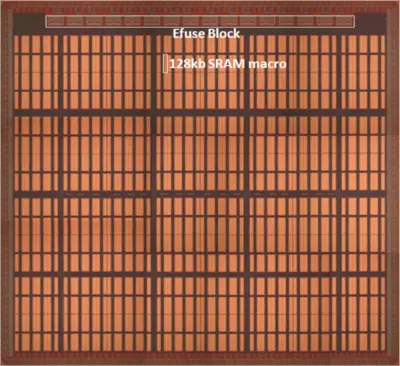From WikiChip
16 nm lithography process
The 16 nanometer (16 nm) lithography process is a full node semiconductor manufacturing process following the 20 nm process stopgap. Commercial integrated circuit manufacturing using 16 nm process began in 2014. The term "16 nm" is simply a commercial name for a generation of a certain size and its technology, as opposed to gate length or half pitch. This technology is set to be replaced with 10 nm process in 2017.
Industry
| Fab |
|---|
| Wafer |
| |
| Fin Pitch |
| Fin Width |
| Fin Height |
| Contacted Gate Pitch |
| Interconnect Pitch (M1P) |
| SRAM bit cell |
TSMC
TSMC demonstrated their 256 Mebibit SRAM wafer from their 7nm HKMG FinFET process. Their chip makes use of 34% of the area of their 16 nm process demo chip counterpart.
| TSMC 256Mb SRAM demo wafer[2] | |||||||||||||||||
|---|---|---|---|---|---|---|---|---|---|---|---|---|---|---|---|---|---|
|

| ||||||||||||||||
16 nm Microprocessors
This list is incomplete; you can help by expanding it.
16 nm Microarchitectures
This list is incomplete; you can help by expanding it.
 Semiconductor lithography processes technology
Semiconductor lithography processes technology